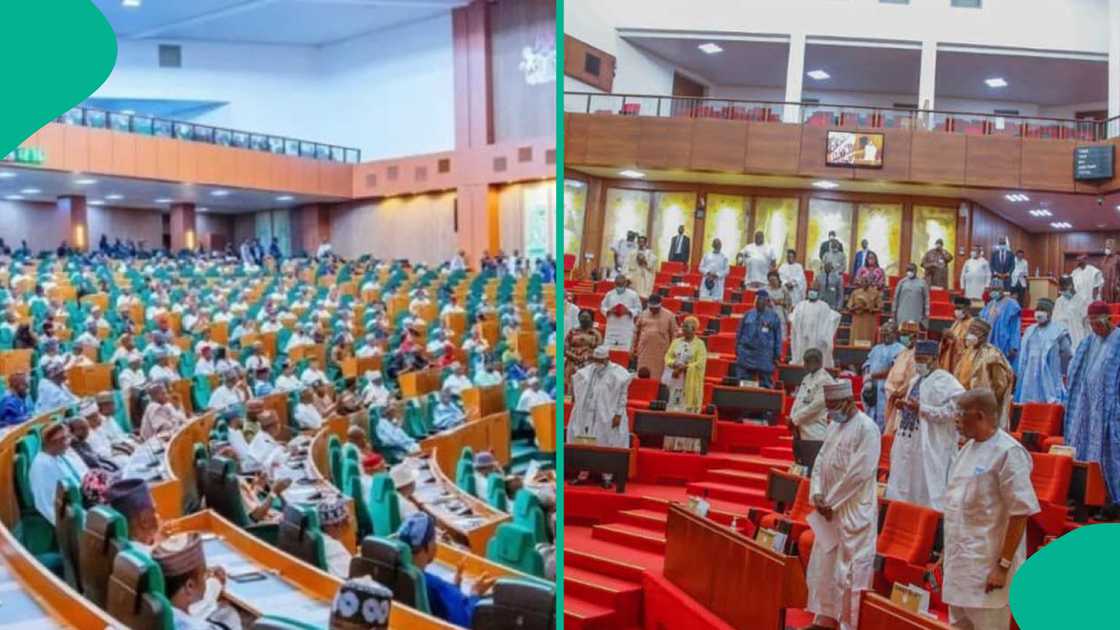Supreme Court: Lagos Government Sues National Assembly Over Proposed Game Bill
- Lagos State has asked the Supreme Court for permission to begin contempt proceedings against the National Assembly over a proposed gaming bill
- The state claims the bill breaches a 2024 judgment that ruled federal legislation on lottery and gaming unconstitutional
- Legal experts say the move could redefine the limits of federal power and reinforce judicial authority in Nigeria
The Lagos State Government has asked the Supreme Court for permission to begin contempt proceedings against the National Assembly, accusing it of breaching a standing judgment that declared federal control over lottery and gaming unconstitutional.
In a motion filed by the Attorney-General and Commissioner for Justice, Lagos is seeking leave to initiate enforcement of the Supreme Court’s ruling via Form 48 — a legal notice that serves as a formal warning under Nigerian law. If ignored, it may lead to committal to prison.

Source: Twitter
The state’s legal team, led by Bode Olanipekun (SAN), argued that the National Assembly’s ongoing review of the proposed Central Gaming Bill directly violates the apex court’s decision in SC.1/2008: Attorney-General of Lagos State & Ors. v. Attorney-General of the Federation & Ors., delivered on November 22, 2024.
Lagos challenges federal gaming bill clauses
In its affidavit, Lagos claimed that several sections of the bill, especially clauses 7 and 21–64, deal with lottery and gaming, despite the Supreme Court’s ruling that such matters fall outside federal legislative powers.
The state said these clauses closely resemble those in the now-voided National Lottery Act, which the court struck down in 2024.
The affidavit further noted that both the invalidated law and the new bill define “lottery” and “online gaming” in similar terms, covering games of chance or skill that require a licence.
Lagos also highlighted Clause 62 of the bill, which aims to preserve actions taken under the nullified law, calling it “a deliberate attempt to undermine the Supreme Court’s authority.”
State jurisdiction over lottery and gaming
Lagos stressed that since the 2024 judgment, no changes had been made to the Second Schedule of the 1999 Constitution, which outlines the Exclusive and Concurrent Legislative Lists, to include lottery or gaming. This, the state argued, confirms that such matters remain under state control.

Read also
Wike vs Lt. Yerima: Legal experts explain 2 sides of FCT minister's clash with Naval officer
In its landmark ruling, the Supreme Court had held that regulation of lottery and gaming lies outside the National Assembly’s powers, rejecting claims that federal authority could be inferred from Item 62 (trade and commerce) or the interstate nature of gaming operations.
By returning to the Supreme Court, Lagos is seeking to enforce the judgment through contempt proceedings, a move that could shape future interpretations of legislative boundaries and reaffirm the authority of Nigeria’s highest court.
Speaking with Legit.ng, AbdulRasheed Hussain, a public analyst based in Nigeria, contextualised the recent issue between National Assembly and Lagos government:
“The move to initiate contempt proceedings against the National Assembly by Lagos state is simply an assertion of judicial authority and federalism. By invoking Form 48, the state is signaling that it will not tolerate legislative attempts to override or dilute a Supreme Court judgment that already settled the question of federal control over lottery and gaming. The fact that the proposed Central Gaming Bill mirrors provisions of the voided National Lottery Act makes Lagos’ case stronger, as it suggests a deliberate disregard for the apex court’s ruling. This confrontation could redefine the boundaries of federal power in Nigeria. If the Supreme Court entertains Lagos’ contempt motion, it would reinforce the principle that once the court has spoken, neither the executive nor legislature can act in defiance.”

Source: Twitter
Lagos government warns national assembly over central gaming bill
Legit.ng earlier reported that the Lagos State Government has issued a stern warning to the National Assembly, urging it to halt progress on the proposed Central Gaming Bill, which it described as a direct breach of the Nigerian Constitution and a standing Supreme Court judgement.
Speaking at a press briefing in Lagos, the Attorney-General and Commissioner for Justice, Mr Lawal Pedro, SAN, stated that the Bill, currently before the Senate following its passage by the House of Representatives, represents legislative overreach and could ignite a constitutional crisis.
Proofreading by James Ojo, copy editor at Legit.ng.
Source: Legit.ng




